Posted in: 11/10/2023
Synergia Socioambiental received the Silver Seal from the PBGHG Protocol in its first Greenhouse Gas (GHG) Inventory .
The Silver Seal of the PBGHG Protocol , which certifies complete GHG inventories , is a way of validating the contribution of companies to providing public emissions data to society through the Public Emissions Registry , making processes more transparent and encouraging other companies to do the same.
The Brazilian GHG Protocol Program (PBGHG) was developed in 2008 by the Center for Sustainability Studies of Fundação Getúlio Vargas (FGVces) and World Resource Institute (WRI) – in partnership with the Ministry of the Environment , Brazilian Business Council for Sustainable Development ( CEBDS), World Business Council for Sustainable Development (WBSCD) and also 27 founding companies.
According to the organization, the program is “responsible for adapting the GHG Protocol method to the Brazilian context and developing calculation tools for estimating greenhouse gas (GHG) emissions”.
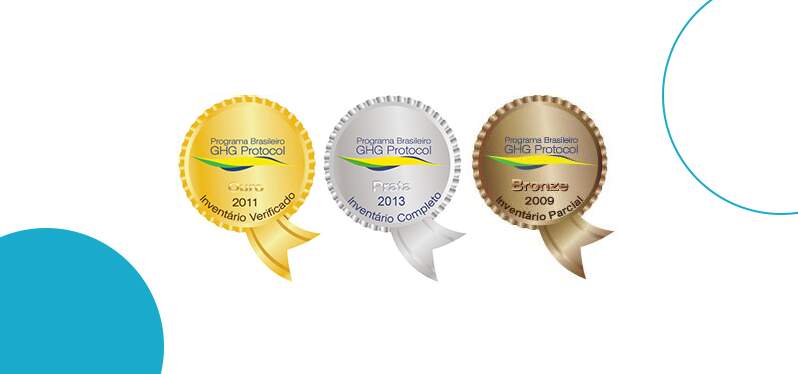
Three seal categories can be assigned to greenhouse gas inventories by PBGHG :
Among the main objectives of the program are “to stimulate the corporate culture of inventorying GHG emissions in Brazil for an agenda to combat climate change in organizations” and “To provide international quality instruments and standards for accounting for emissions and publishing inventories”.
Synergia has been preparing its inventory of corporate greenhouse gas emissions internally since 2020. The company uses the calculation tool made available free of charge by PBGHG.
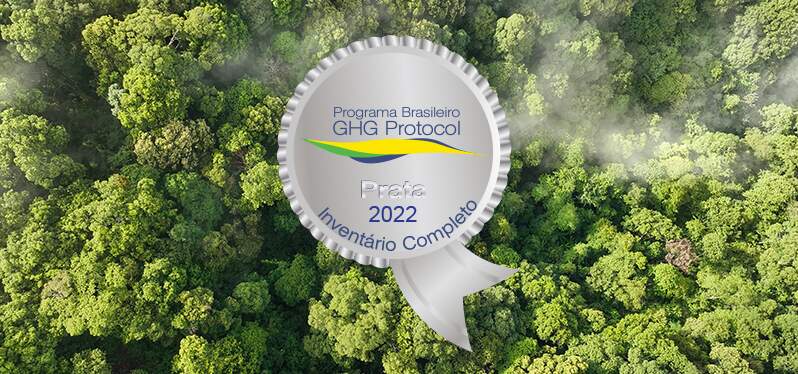
Adherence to the Brazilian GHG Protocol Program occurred this year. Thus, the company became part of the group of organizations that count their emissions and make their inventories publicly available on the Public Emissions Registry platform – the largest public database of organizational inventories in Latin America. This initiative reaffirms Synergia Socioambiental’s commitment to good practices and the transparency of its processes.
Synergia’s emissions inventory, with data relevant to the year 2022 , is available for free consultation on the Public Emissions Registry platform.
The Synergia Socioambiental Greenhouse Gas Inventory was officially published on October 24th, during the Annual Event of the Brazilian GHG Protocol Program (PBGHG) .
With a record number of people joining the program, 440 companies , this year’s event brought together experts for “a debate on the challenges towards climate neutrality in 2050, from sectoral perspectives and trends”, in addition to celebrating 15 years of the GHG . Check out the full event:
Annual Event of the Brazilian GHG Protocol Program | Cycle 2023
PBGHG is a voluntary initiative , in which participating companies commit to publishing their greenhouse gas inventories annually, contributing to the provision of public emissions data for society.
For Bianca Gomes, Sustainability and Social Responsibility coordinator at Synergia, the increase of more than 40% in the number of companies participating in the program, compared to the 2022 cycle, can be interpreted as a reflection of the relevance of the environmental and climate change agenda in the context of the organizations’ business strategy : “Companies that are attentive to global discussions and economic movements tend to anticipate regulatory and mandatory measures for each sector and already voluntarily present their diagnoses, as well as define goals and action plans to contribute to reducing its emissions”, he points out.
Another highlight of the event was the effort that companies are making to account for their Scope 3 emissions , an item whose presentation is not mandatory, but which, however, can represent a significant percentage of total emissions . “Scope 3 covers emission sources that are indirectly associated with the organization. In other words, those that occur beyond its ‘gateways’. The effort, in this case, is to obtain information from your value chain (suppliers, partners and service providers). This does not happen easily, as most of these actors still do not monitor their emissions. So, to have increasingly better and more complete inventories, truly collaborative work is needed to inform, support and engage the entire value chain”, adds Bianca.
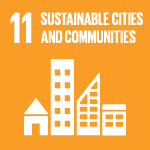
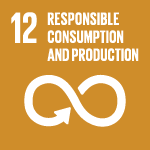
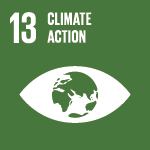
Sign up and receive our news.